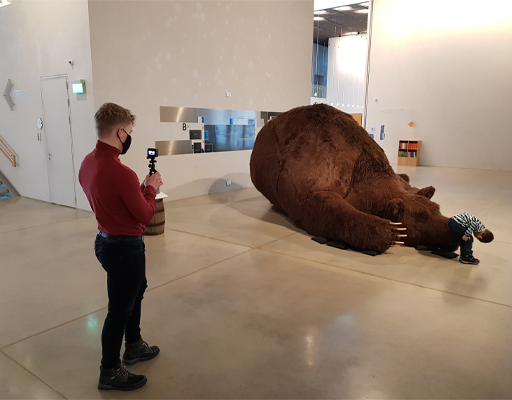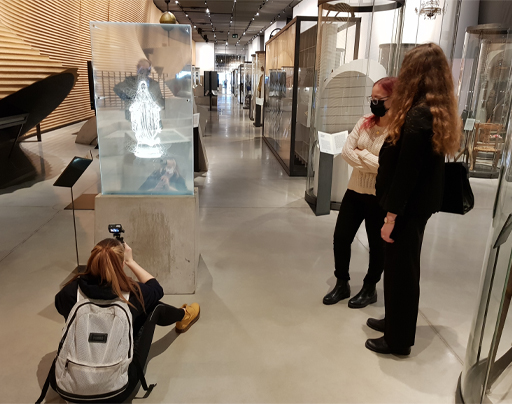2 Ethical considerations
Religious toleration and peace can be a sensitive and sometimes controversial topic. You should remind participants of the importance of being considerate and respectful of each other’s views, as well as of anyone they are planning to involve in the film.

If the young people plan to film or interview anyone for their docutube who is not part of their group, they will need to gain informed consent from them. This means that they will need to explain to them what their film is about, what it is for and make sure that everyone who is filmed (including members of their own group) is happy with the footage that is included in the docutube.
While being filmed, participants or interviewees might make some remarks about potentially sensitive topics that, on reflection, they might quickly regret or not like to be shared more widely. This is why you will need to stress that it is important for ethical and legal reasons that your groups do not publicly to share any ‘raw’ film footage. They need to agree to only share the final edit of the docutube, i.e. footage that has been approved by you and everyone in the group, and that any further footage will need to be deleted once the workshop is completed.
Here is an example of an information sheet and consent form [Tip: hold Ctrl and click a link to open it in a new tab. (Hide tip)] that groups can use for people they would like to interview for their docutubes.
One reason why the RETOPEA team used GoPro cameras when they piloted the docutube workshops was because these cameras cannot be directly connected to the Internet. This allowed the team to maintain tighter control over where and how footage was shared. GoPro cameras might not be an option for you, in which case it is all the more important that you stress to young people to be mindful of these ethical concerns.
Remind young people that they might also need to ask for permission to film in particular locations, such as museums, galleries or other buildings. If in doubt, it’s best to ask for permission before starting to film.

Finally, make sure you are aware of relevant policies at your school, youth group, museum etc. regarding taking pictures or filming other people and gain parental consent, where appropriate. You can reassure members of your group that they do not have to appear on camera if they do not feel comfortable with it – as has been mentioned there are plenty of other roles they can take on behind (rather than in front of) the camera.
